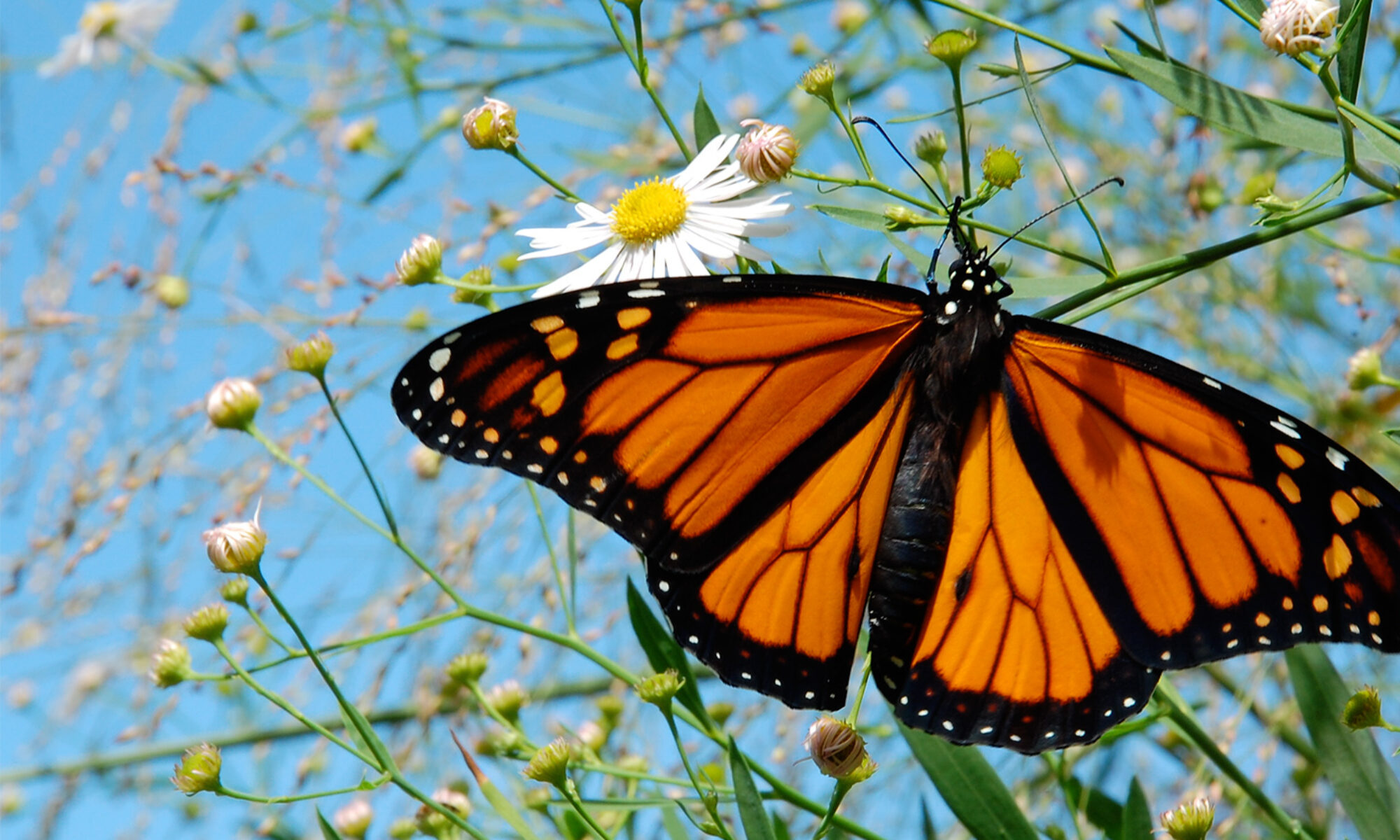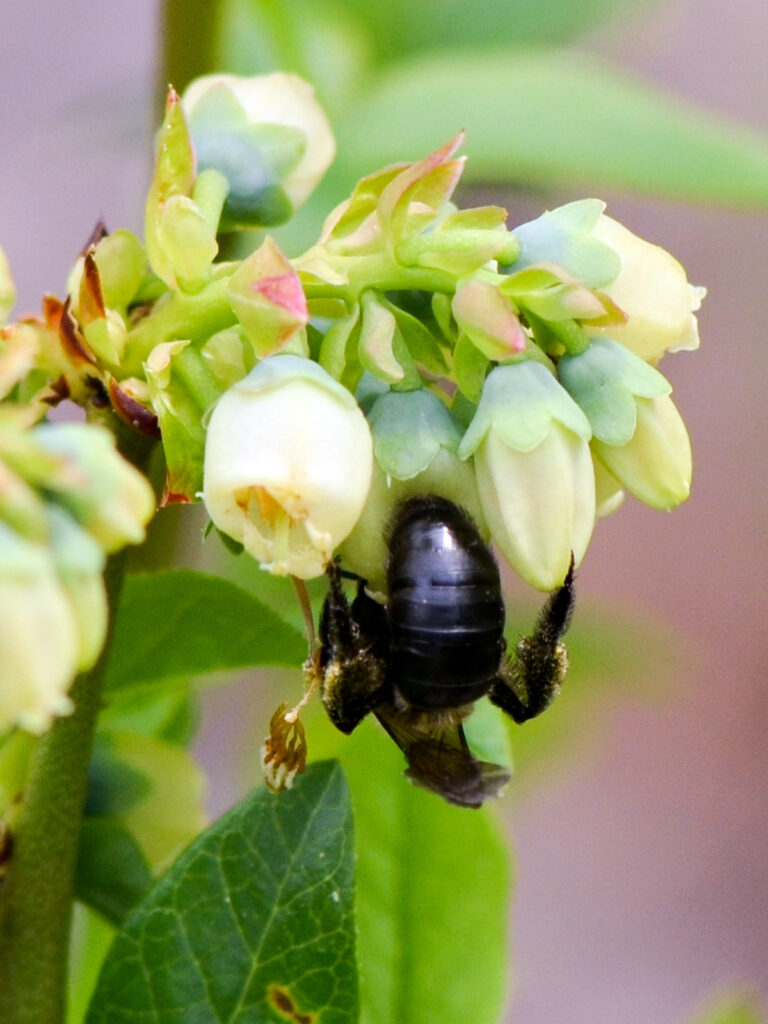
Carpenter bees are a beneficial insect and an important pollinator, being early morning foragers, such as this one helping pollinate our blueberries.
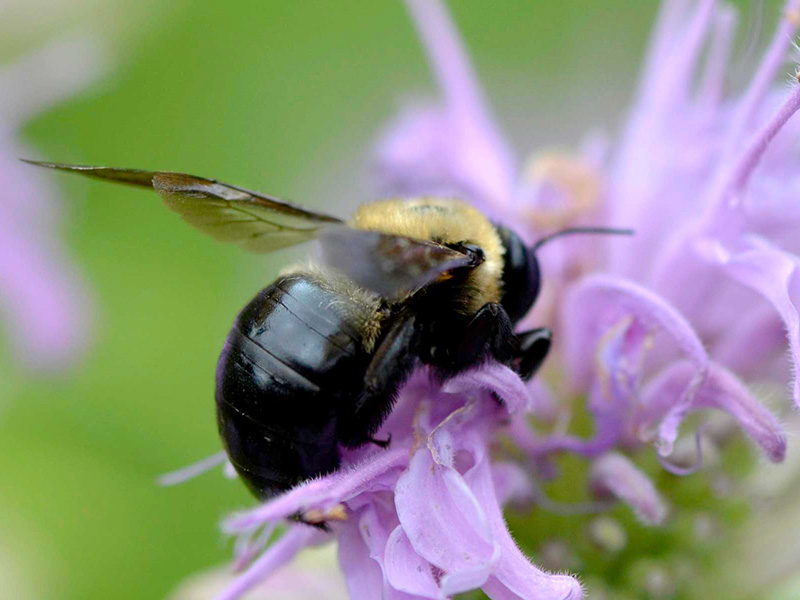
You can recognize carpenter bees by their shiny abdomen, which isn’t fuzzy like those of bumble bees. Many carpenter bees are also larger than some bumble bees.
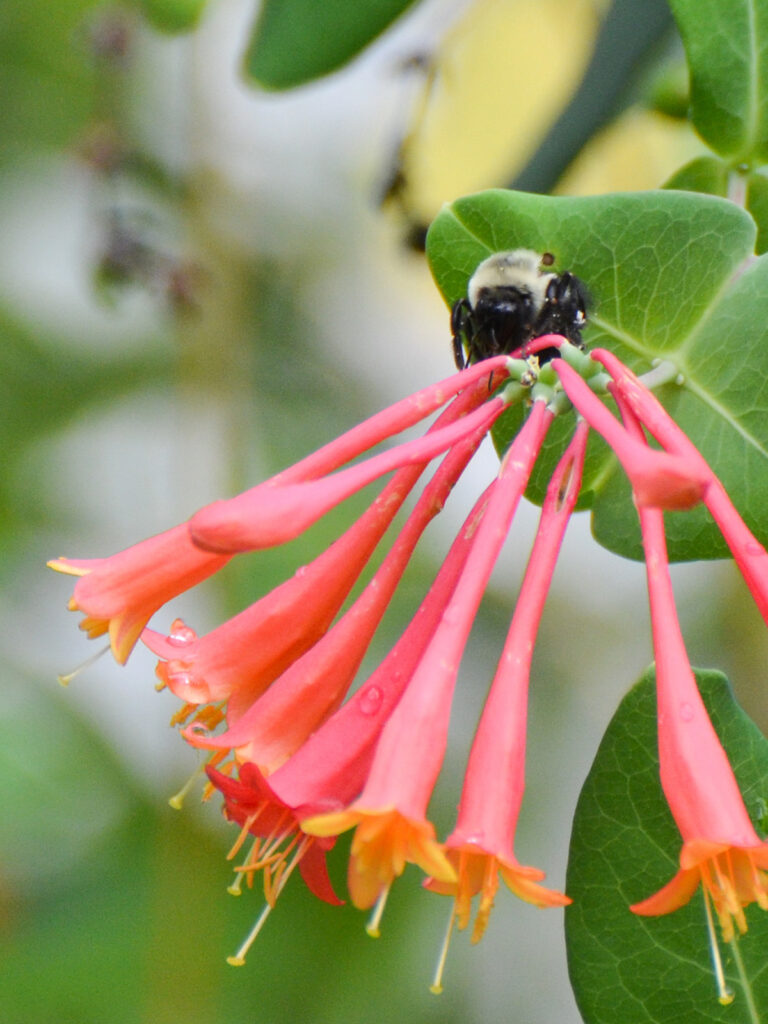
One interesting behavior is that they’re “nectar robbers.” You can see the slit this carpenter bee has already made in one of the honeysuckle flowers.
As their name implies, they can drill holes in non-painted wood. I’ve read that they are less likely to drill holes in wood painted with oil-base paint or stained. I’ve also read that an annual application of almond oil will also work. If they persist, the wood can be covered with a painted strip of flashing or screening.
Even better is to provide untreated pine or cedar away from the structures you want to protect. And perhaps the best solution: Leave some snags, logs, and other natural nesting places!
In other words, there usually are solutions other than killing them.
We have quite a few around our yard and haven’t had any problems. Perhaps one reason is that we have plenty of logs and other dead wood that may give them more attractive nesting places than our house might be.
All in all, they don’t create problems on the scale that termites, for example, would create, and they’re generally beneficial.
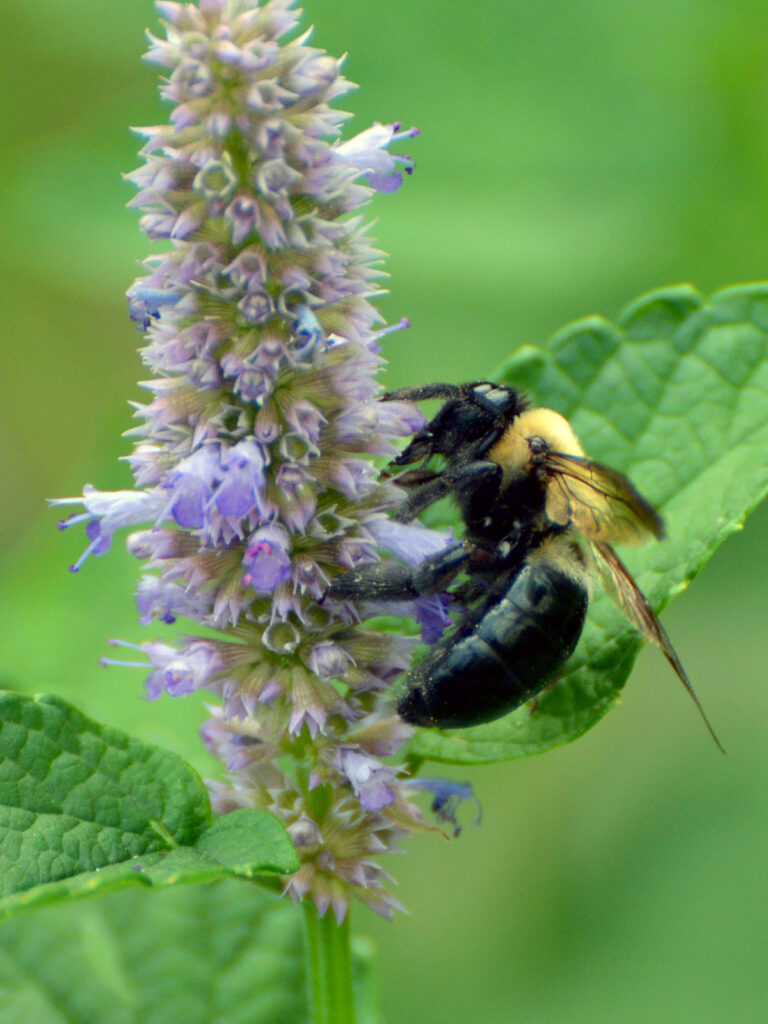
The other reason for some people’s negative view of carpenter bees may be that the males can seem aggressive.
But despite their comical bluster, the males cannot sting! We know someone who enjoys tossing a pebble in the air and watching them chase it. We haven’t had any luck doing this yet, but we appreciate the perspective.
Females can sting, but unless captured or handled roughly, they’re usually too busy with their “chores” to bother.
We haven’t had any problems with the many carpenter bees in our yard, so our approach is just coexist and appreciate their pollination services. We need to save all the native pollinators we can if we’re going to preserve our food system and the world’s ecosystems in general.
Resources
- Pollinator Pathways:
- Cornell Insect Diagnostic Lab:
- Carpenter bees are pollinators of flowers, and therefore are considered beneficial. If they are not in a place where they are bothering anyone, they can be left alone. The majority of the tunneling damage is just to fascia boards. Some people remove the boards with the bees in them, placing them out of the way, and replace with new boards. New boards should be painted or finished promptly to discourage carpenter bees taking up residence. Well-painted finished structures are a deterrent to carpenter bees.
- Factsheets: Carpenter bees
- US Forest Service:
- Univ. of Maryland Extension:
- Environmental Entomology:
- Polinizador’s Blog:
Reflections
… the more insects in your garden, the better off it will be. If you build a more complex garden, the insects will come and the garden will become more manageable, naturally.
~ , Insects and Gardens: In Pursuit of a Garden Ecology, p. 231, 2001
The significant problems we have cannot be solved at the same level of thinking with which we created them.
~
